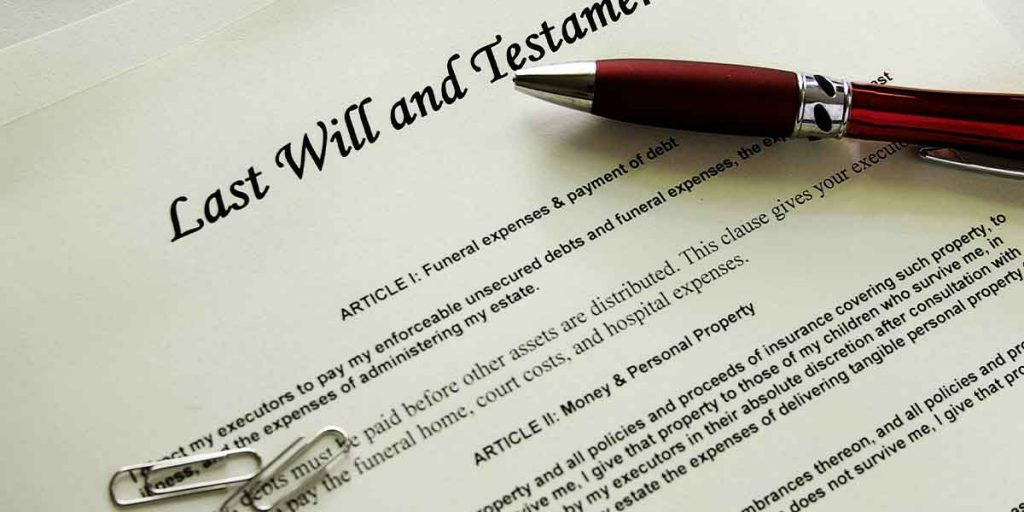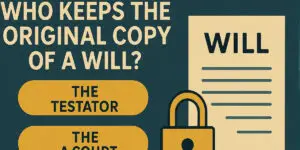At some point in a person’s life, he or she is bound to think of the future and ask questions like, “how will my possessions be divided amongst my heirs when I die? What if something bad happens to me now, can I have a say regarding how my business is to be run? How would they know the kind of healthcare I would prefer?” Such are the questions that brought about the concept of estate planning.
While trying to make such important decisions for the future, some people make grave mistakes along the way. Some people do not find the courage to think about death, and so enjoy the good moments until disaster strikes, while others carry out estate planning with very little knowledge. In whatever way we look at it, proper estate planning is the only assurance you have that your wishes would be honored, and to get this assurance, it is important you get your estate plan right. It becomes crucial you seek the assistance of an estate planning attorney in order to avoid the common mistakes people make.
If you live near 11223 Brooklyn and wish to consult an estate planning attorney near you, kindly call our law office to speak with one.
7 common estate planning mistakes to avoid
1. Waiting until you are “old enough”
There is no proper time for estate planning. So long you are up to the legal age of consent (18), you are capable of estate planning. Waiting till you have reached a ripe old age is risky. Who knows when disaster would befall them? It is neither easy nor elevating to think about, but it is better safe than sorry. You can only put plans in place against future eventualities now that you are healthy. So long you have substantial assets to your name and know just whom you would want them to go to, it is advised you make your wishes known on paper.
2. Not planning for incapacity
Some people only write wills without thinking about negative occurrence during life. An accident or terminal illness can render one incapable of doing anything or even making decisions for themselves. By creating powers of attorney and healthcare proxy, you can appoint someone who you deem competent to manage your estate and make the right decisions on your behalf.
3. Dying without a will or trust
Failure to write a will before you die means you have died intestate. New York intestacy laws allow only your spouse and kids to inherit. If neither is alive, then your closest blood relative would be the one to inherit everything. Wills and Trusts enable you to leave assets for whomever you please. Without either of these documents, your wishes would not be known and cannot be honored.
4. Choosing to DIY
Some persons chose to create their estate plans themselves because of the low cost. In trying to write the terms of each estate planning document, you must be very careful as a little mistake can cause your estate to crumble like a sand castle. Ambiguity or discrepancy in your will can lead to will contests and litigation. At the end of the day, your loved ones would be furious for having you put them through such difficulties amidst the grief of your loss. To avoid all that, get professional assistance in order to draft your documents accurately.
5. Not updating your estate plan
Estate planning documents are not papers to dump in a safe until you die or become incapacitated. There is need to review them from time to time to see if they meet up with current estate laws — as they change often — as well as your current situation. If after creating your documents you get divorced, get married, have a child, suffer the death of a fiduciary, or acquire new assets, then you would have to review your estate plan. Possibly you would need to include your new family members and newly acquired in your will or change your fiduciary.
6. Failure to consider asset titling
The way an asset is titled will determine how it’s to be passed. Those assets with beneficiary designations such as life insurance, IRAs and POD accounts will pass outside your will. Jointly owned assets would pass down to the surviving joint owner regardless of what your will says. If you do not consider how your assets are titled before including them in your will or trust, then there likely would be inconsistencies in your estate plan.
7. Not hiring an estate planning attorney
There is a general peace of mind you enjoy knowing you have competent hands on deck. Your estate planning lawyer would help review your estate plan to ensure mistakes are avoided and your best interests protected. It is also to your best interest that you open up to your attorney about your wishes and family situation as they become better equipped to help you in the decision-making process.
The right time to do estate planning is now. Call us to speak with an estate planning attorney near 11223, Brooklyn.









